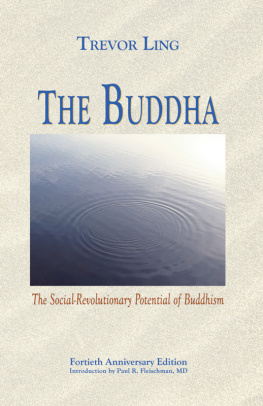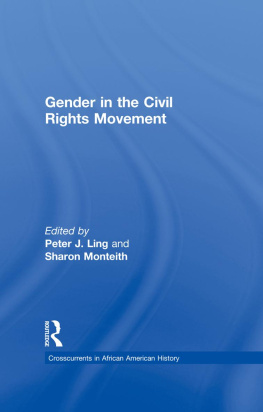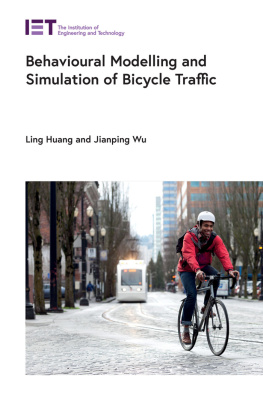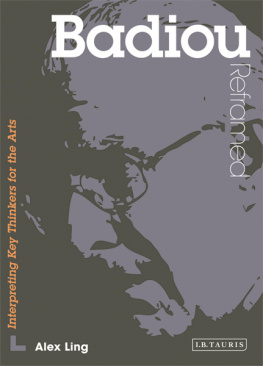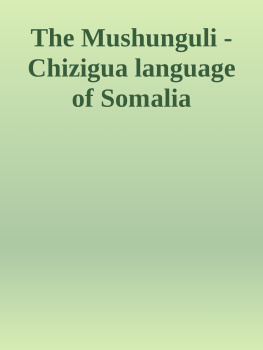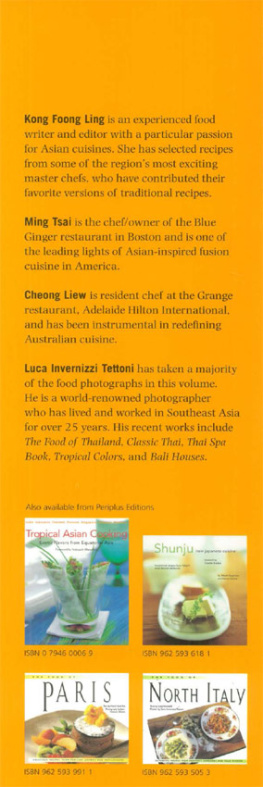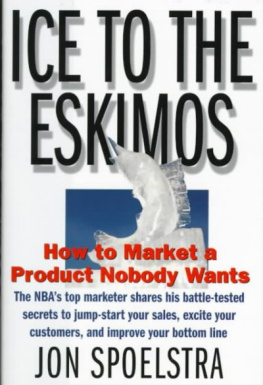Mei-Ling Hopgood - How Eskimos Keep Their Babies Warm
Here you can read online Mei-Ling Hopgood - How Eskimos Keep Their Babies Warm full text of the book (entire story) in english for free. Download pdf and epub, get meaning, cover and reviews about this ebook. year: 2013, publisher: Macmillan, genre: Home and family. Description of the work, (preface) as well as reviews are available. Best literature library LitArk.com created for fans of good reading and offers a wide selection of genres:
Romance novel
Science fiction
Adventure
Detective
Science
History
Home and family
Prose
Art
Politics
Computer
Non-fiction
Religion
Business
Children
Humor
Choose a favorite category and find really read worthwhile books. Enjoy immersion in the world of imagination, feel the emotions of the characters or learn something new for yourself, make an fascinating discovery.

- Book:How Eskimos Keep Their Babies Warm
- Author:
- Publisher:Macmillan
- Genre:
- Year:2013
- Rating:4 / 5
- Favourites:Add to favourites
- Your mark:
- 80
- 1
- 2
- 3
- 4
- 5
How Eskimos Keep Their Babies Warm: summary, description and annotation
We offer to read an annotation, description, summary or preface (depends on what the author of the book "How Eskimos Keep Their Babies Warm" wrote himself). If you haven't found the necessary information about the book — write in the comments, we will try to find it.
How Eskimos Keep Their Babies Warm — read online for free the complete book (whole text) full work
Below is the text of the book, divided by pages. System saving the place of the last page read, allows you to conveniently read the book "How Eskimos Keep Their Babies Warm" online for free, without having to search again every time where you left off. Put a bookmark, and you can go to the page where you finished reading at any time.
Font size:
Interval:
Bookmark:
Also by Mei-Ling Hopgood
Lucky Girl: A Memoir

Keep Their Babies Warm

And Other Adventures in Parenting
(from Argentina to Tanzania and everywhere in between)

MEI-LING HOPGOOD

Published by
Algonquin Books of Chapel Hill
Post Office Box 2225
Chapel Hill, North Carolina 27515-2225
a division of
Workman Publishing
225 Varick Street
New York, New York 10014
2012 by Mei-Ling Hopgood. All rights reserved.
Published simultaneously in Canada by Thomas Allen & Son Limited.
eISBN 978-1-61620-120-3
For Monte, Sofia, and Violet


Travel is more than the seeing of sights; it is a change
that goes on, deep and permanent, in the ideas of living.
Miriam Beard, Realism in Romantic Japan
Im sitting on a patio in Buenos Aires, nibbling on cinnamon cake, talking with a group of friends about the way local parents raise their kids. We are a Chinese American, a Bolivian American, an African American, a Portuguese woman, and two Argentinesthree moms, one expectant mom, and two maybe-somedays. Our husbands and significant others dip in and out of the conversation. The subject turns to raising a child in a culture that is different from our own, and the conversation goes something like this.
Its crazy, I say. There are so many things that moms and dads do so differently here, things Id probably flip out about if I were in the States.
Another American mom chimes in. I know! I dont know what to do when all these parents on the playground offer my kid a cookie. I say no sometimes. But Ive had to relax about that and so many other things.
Doesnt all that sugar make the children hyper? someone asks.
Thats not true, says an Argentine, who is stewing a bit at the end of the table. My son falls asleep earlier than anyone, with or without a few cookies.
What about bedtimes? I mean, come on, Argentine kids are up at all hours, another woman says.
Yeah, I cant believe theyre running around restaurants at midnight!
But it all works out, I interject, knowing that Ive been guilty of letting my child stay up past 11:00 p.m. more than once.
Raising a child abroad has been eye-opening. There are so many surprising, instructive moments of comparison and contrast, from the way Argentines pamper pregnant women (I was offered seats on trains and buses and urged to cut to the front of almost any line) to the attitudes about food (fresh purees are fed to kids instead of prepackaged baby food).
The experience made me think back to all the observations Id made in passing, pre-parenthood. I saw kids enthusiastically eating strange foods at a bar in a swamp town in Brazil and in the tent home of a family in rural Thailand. I watched in awe while moms and dads carried babies on their backs, hips, and chests as they climbed mountains, loaded trucks, and even drove motorcycles. My biological siblings in Taiwan suggested, to my amusement, that I might fold a thousand cranes for good luck when I was pregnant and insisted that I should drink only hot beverages after birth to ensure that my body healed properly. My Korean sisters-in-law slept with their kids well into toddlerhood with no guilt, and fixed streamed rice wrapped in seaweed nori wrappers for snacks and hot soup for breakfast. My birth sister, who was raised in Switzerland, told me how some kids grew up learning three or four languages in school.
These things once seemed like cultural eccentricities that might have made me marvel, laugh, or gasp in horror. But now that Im a mom, I realize that in many cases there are interesting, darn good reasons for why people do what they do. It occurred to me that if I asked the right questions, I could learn a ton about parenthood from people in different cultures. So I set out in planes, trains, automobiles, cruising the Internet, looking for smart fathers and mothers who were willing to share their stories. I dug into the vast research of scholars schooled in other cultures, then hunted down some of those experts, as well as pediatricians, psychologists, and child developmental specialists, to ask them to help me understand what I was learning. I was familiar with the advantages and neuroses of parents in and from middle-class America: how much we care about our families and the myriad inventions that have helped make our kids healthy and happy. Im grateful for my BellaBand, BabyLegs, my Maclaren stroller, for WebMD and the many available innovative, modern baby products. But I wanted to step out of my comfort zone into communities that were not so familiar, to see what I might be missing.
Reading these chapters might make you think that Im a mother who calculates her every move and decision. Once my first child was born, instinct tended to be my guide. The parenting books, magazines, and blogs were entertaining and occasionally helpful, but sometimes the advice made me feel inadequate, as if the wrong move meant certain disaster for my family. (Really, I didnt need to do any more worrying.) I was so absorbed with the developments and challenges of the day that Id forget what wed been through six months before. The trials of breast-feeding and the first tooth faded into the recesses of my strained mommy brain as we moved on to preschool, viruses, and temper tantrums.
Observing real parents dealing with the similar challenges in distinct environmentsoften much more difficult or harsh than the reality I knewforced me to think about what I was doing. Meredith Small, Cornell anthropologist and author of Our Babies, Ourselves: How Biology and Culture Shape the Way We Parent, a book on how culture and biology impact parenting, wrote:
and the accepted rule is for each baby to have a bed, if not a private room, to itself. In general, the two styles reflect the place of person within society. Feeding, sleeping patterns, and how a baby spends the day quickly become a lesson in expectations. San children live in a tightly knit small community, where social integration is important. In America, social independence is favored, and so babies are regulated and encouraged toward independence. The cultural milieu, then, is a powerful and barely studied force that molds how we parent.
When I saw how early the Chinese potty trained, how the French talked to their children about food, how members of a Lebanese American extended family methodically taught their kids to feel deeply responsible for and connected to one another, I was compelled to think about what I wanted for my own child in a wider context. I began to examine, in many cases for the first time, not only how I was raising my child but also my entire value system. In the book Parental Behavior in Diverse Societies, Harvard anthropologist Robert LeVine and his coauthors put it this way: the contexts of parental behavior in other cultures, we uncover universals and variables in the parental predicament and are able to place our current problems in a broader perspective.
Next pageFont size:
Interval:
Bookmark:
Similar books «How Eskimos Keep Their Babies Warm»
Look at similar books to How Eskimos Keep Their Babies Warm. We have selected literature similar in name and meaning in the hope of providing readers with more options to find new, interesting, not yet read works.
Discussion, reviews of the book How Eskimos Keep Their Babies Warm and just readers' own opinions. Leave your comments, write what you think about the work, its meaning or the main characters. Specify what exactly you liked and what you didn't like, and why you think so.

